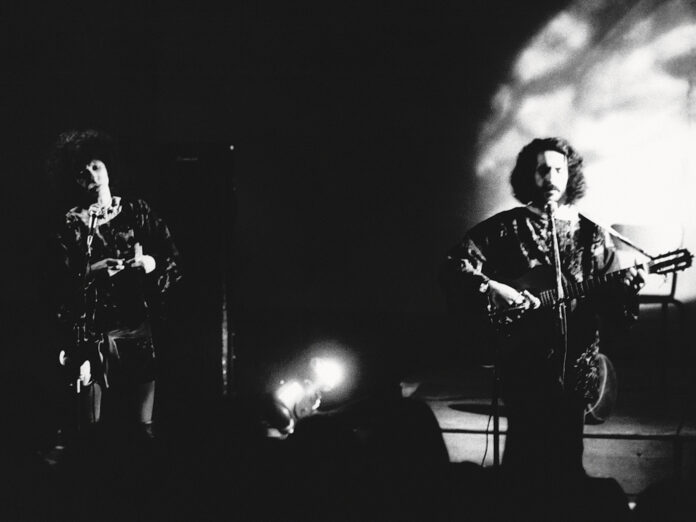Bowie goes Berlin, music quakes – here’s the fall-out
Bowie goes Berlin, music quakes – here’s the fall-out
The concept behind Fantastic Voyage, compiled by Bob Stanley of St Etienne and Jason Wood from the British Film Institute, is simple: tracking the two-way flow of influence between David Bowie’s Berlin-era albums and the German electronic and avant-rock that informed Bowie’s thinking at the time. It’s a smart conceit for a compilation, something that Stanley in particular has become exceptionally good at over the past decade. Indeed, the recent string of collections he’s pulled together for Ace Records are often sensitive mappings of discrete cultural scenes or imagined aesthetic collisions; while 2020’s Cafe Exil: New Adventures In European Music 1972-1980 pieced together what Bowie and Iggy might have been listening to in their favourite Kreuzberg haunt.
TALKING HEADS ARE ON THE COVER OF THE NEW UNCUT – HAVE A COPY SENT STRAIGHT TO YOUR HOME
It’s not hard to see the ways that Fantastic Voyage’s remit can be stretched, massaged and morphed. Some of the names here are to be expected – Holger Czukay, Cabaret Voltaire, The Associates – but some may land, initially, as quite a surprise: Daryl Hall, Peter Gabriel. It’s the latter inclusions that make Fantastic Voyage more valuable than a predictable hipster’s selection of ‘the right records’. Treating the Bowie-Berlin creative nexus as pliable material, Stanley and Wood offer other ways of thinking about how electronic music and rock went mutually mutant in the early ’80s.
The Hall contribution is one of the compilation’s most gorgeous moments: “The Farther Away I Am” is a late-night hymn, an intimist’s dream of a song, taken from his album Sacred Songs. Recorded in 1977 but not released until 1980, Sacred Songs is Hall’s masterpiece, made in collaboration with Robert Fripp. Indeed, Fripp understandably hovers over Fantastic Voyage as a kind of éminence grise: the taut and itchy “Exposure”, from Fripp’s album of the same name, is also included here, and he turns up on guitar on Peter Gabriel’s tortured “No Self Control”.
Gabriel’s contribution precedes the song that feels like Fantastic Voyage’s core, The Walker Brothers’ “Nite Flights”. The moment where Scott Walker truly unshackles himself from the brothers’ lush, brooding balladry and goes fully existential, it’s still startling, 40 years on, a stealthy machine of a song, a warped hybrid of krautrock’s rhythmic monotony and stylised art-rock. Bowie’s “Heroes” was a reference point for Walker while recording his contributions to “Nite Flights”’s attendant album, and Bowie would repay the favour, decades later, covering it on 1993’s Black Tie White Noise.
Lest Fantastic Voyage come across as an exercise of reinforcing myths, the veneration of a gang of white intellectuals exoticising Berlin’s post-war ruins, Stanley and Wood are careful to bring in other voices. One of the highlights of Fantastic Voyage is the plasmic drift of Brigitte Fontaine and Areski’s “Patriarcat”; another is Isabelle Mayereu’s “On A Trouvé…”, from her chanson curio, Des Mot Étranges…; Grauzone’s “Eisbar” still feels like a beautiful anomaly in the landscape. And that’s the great art of Fantastic Voyage – drawing up new plans that allow different contexts for such strange, glorious architectures.



